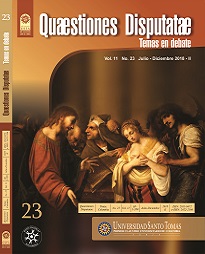Friedrich Nietzsche and the Basel conferences on the history of Greek literature
Main Article Content
Abstract
The lectures held by Friedrich Nietzsche when he had the professorship of Greek Language and Literature between 1869 and 1879 at the University of Basel, are today the least known of the philosopher´s Nachlass. These writings allow for a reconstruction of the relationship of the philosopher with the Greek world in all its complexity and in an alternative way to that which arises from the Birth of Tragedy. The aesthetic experience of the Greek world is an extremely complex phenomenon which is irremediably extraneous to the modern experience. It can been easily understood when we try to refer it to the framework of modern aesthetics. The incongruity which lies at the base is the conception itself of what we can refer to as culture in the modern society and in the ancient one: reading and writing and the consequent way and tools used for the transmission of knowledge.What can we learn from the ancient people? In order to answer this question Nietzsche investigates the birth process of a work of art in the Greek language. The analysis of the rigid norms which are characteristic of the literary genres will show an anti-romantic image of a strongly formal and conventional art, that is closely linked to complex norms connected to Public Institutions. A path of reflections on ethic and aesthetic concepts on shape and norm, discipline and convention in contrast to the opinions of an “irrationalist” Nietzsche shows itself in the lectures. It will then be developed starting from Menschliches, Allzumenschliches to the entire Nietzsche production.
Article Details
How to Cite
Santini, C. (2018). Friedrich Nietzsche and the Basel conferences on the history of Greek literature. Quaestiones Disputatae: Temas En Debate, 11(23), 90-98. Retrieved from http://revistas.ustatunja.edu.co/index.php/qdisputatae/article/view/1680
Section
Articulos Vol. 11
De acuerdo a la Licencia Creative Commons Atribución-No Comercial-Sin Derivar 4.0 Internacional, se autoriza leer, descargar, copiar, distribuir, imprimir, buscar o enlazar los textos completos de estos artículos, siempre y cuando se conceda el crédito a los autores de los textos y a la Revista Quaestiones Disputatae: temas en debate, como fuente de publicación original. No se permite el uso comercial de copia o distribución de contenidos, así como tampoco la adaptación, derivación o transformación alguna de estos sin la autorización previa de los autores y de la dirección de Quaestiones Disputatae: temas en debate.

Esta obra está bajo una licencia de Creative Commons Reconocimiento-NoComercial-SinObraDerivada 4.0 Internacional.
References
Christian Benne, Nietzsche und die historisch-kritische Philologie, Berlin 2005 (De Gruyter);
Christian Benne, Carlotta Santini, Nietzsche und die Philologie, in: Helmut Heit und Lisa Heller (Hg.), Handbuch.
"Nietzsche und die Wissenschaften des 19. Jahrhunderts", Berlin. (2012 De Gruyter).
Centauren-Geburten. Wissenschaft, Kunst und Philosophie beim jungen Nietzsche, Tilman Borsche, Federico Gerratana, Aldo Venturelli (Hg.), Berlin 1994 (De Gruyter).
Marcello Gigante, Nietzsche und die klassische Philologie, in: Manfred Riedel (Hg.), «Jedes Wort ist ein Vorurteil». Philologie und Philosophie in Nietzsches Denken, Köln.
"- Weimar-Wien, 1999 (Boehlan Verlag) pp. 151-189". Glenn Most, Thomas Fries, Die Quelle von Nietzsches Rhetorik-Vorlesung und Anhang, in: Josef Kopperschmidt, Helmut Schanze (Hg.), Nietzsche oder “Die Sprache ist Rhetorik”, München 1994 (Wilhelm Fink Verlag), pp. 17-21; 251-258.
James Porter, Nietzsche and the philology of the future, Stanford California 2000 (Stanford University Press).
Gherardo Ugolini, "Philologus unter philologos". Friedrich Nietzsche, die klassische Philologie und die griechische Tragödie, in: Philologus 147, 2003, pp. 316 – 342.
Christian Benne, Carlotta Santini, Nietzsche und die Philologie, in: Helmut Heit und Lisa Heller (Hg.), Handbuch.
"Nietzsche und die Wissenschaften des 19. Jahrhunderts", Berlin. (2012 De Gruyter).
Centauren-Geburten. Wissenschaft, Kunst und Philosophie beim jungen Nietzsche, Tilman Borsche, Federico Gerratana, Aldo Venturelli (Hg.), Berlin 1994 (De Gruyter).
Marcello Gigante, Nietzsche und die klassische Philologie, in: Manfred Riedel (Hg.), «Jedes Wort ist ein Vorurteil». Philologie und Philosophie in Nietzsches Denken, Köln.
"- Weimar-Wien, 1999 (Boehlan Verlag) pp. 151-189". Glenn Most, Thomas Fries, Die Quelle von Nietzsches Rhetorik-Vorlesung und Anhang, in: Josef Kopperschmidt, Helmut Schanze (Hg.), Nietzsche oder “Die Sprache ist Rhetorik”, München 1994 (Wilhelm Fink Verlag), pp. 17-21; 251-258.
James Porter, Nietzsche and the philology of the future, Stanford California 2000 (Stanford University Press).
Gherardo Ugolini, "Philologus unter philologos". Friedrich Nietzsche, die klassische Philologie und die griechische Tragödie, in: Philologus 147, 2003, pp. 316 – 342.

